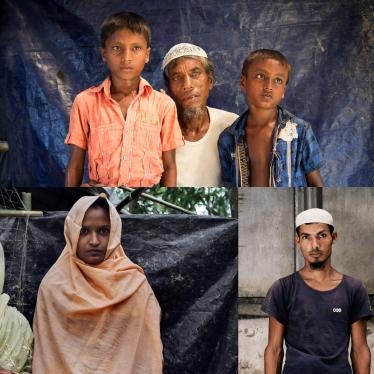(New York) - Human Rights Watch welcomed Indonesian President Habibie's announcement on Sunday that he was accepting the United Nations' offer of an multinational peacekeeping force for East Timor.
Habibie's announcement is a critically important step," said Sidney Jones, Asia director of Human Rights Watch, "but we need to remember that none of the details have been worked out, and we don't know what terms and conditions the Indonesian government will set." Major problems could arise if Indonesia insists on command of an international force or, in deference to growing nationalist sentiment in Jakarta, refuses Australian participation. Any rapid deployment would depend on Australia's providing a substantial proportion of the troops.
Human Rights Watch said that in the negotiations with Indonesia on the peacekeeping force, the United Nations should insist on the following:
- while cooperation with Indonesian forces is clearly necessary, command of the multinational force must not rest with the Indonesian army, and there should be a phased withdrawal of Indonesian troops.
- the multinational force should have a mandate to disarm and arrest militia members as well as Indonesian soldiers responsible for acts of violence.
- there should be a humanitarian aspect to the force as well, so that international agencies, especially those with a protection mandate, can have full, free and safe access to East Timor, and the displaced themselves can be protected against physical assaults and attacks, arbitrary arrest and detention, disappearances, and further forced displacement.
Human Rights Watch said that international sanctions should continue in place until the peacekeepers are on the ground, UNAMET is fully operational again, the displaced are able to return in safety, and the militia members primarily responsible for the violence are under arrest.
Jones said the highest priority, however, should be given to getting the peacekeepers to East Timor as quickly as possible to protect those who are still in danger.
"Tens of thousands of East Timorese have taken refuge at district and subdistrict military commands and police stations throughout East Timor, where they remain at the mercy of the militias that forced them to flee," she said. In addition, militias have a strong presence in the camps and other facilities set up in West Timor to house many of the 90,000 East Timorese who have fled there. Many of these people, but particularly those closely associated with pro-independence organizations, international agencies, or the United Nations Mission in East Timor (UNAMET) could be the targets of militia attacks.
The militias could also make a last-ditch attempt to force more East Timorese into West Timor to try to ensure that the demographic balance is permanently altered before an international force comes in.
"The Indonesian government must understand that it will be held accountable not only for the terror of the past but for any further violence perpetrated by its proxies in East Timor," said Jones.
Human Rights Watch called for a full investigation of what the U.N. Secretary-General has said may amount to "crimes against humanity." It also reiterated its call for an end to martial law. "We continue to believe that there is no reason the existing 15,000 troops could not control the militias if there was the political will to do so," said Jones.






